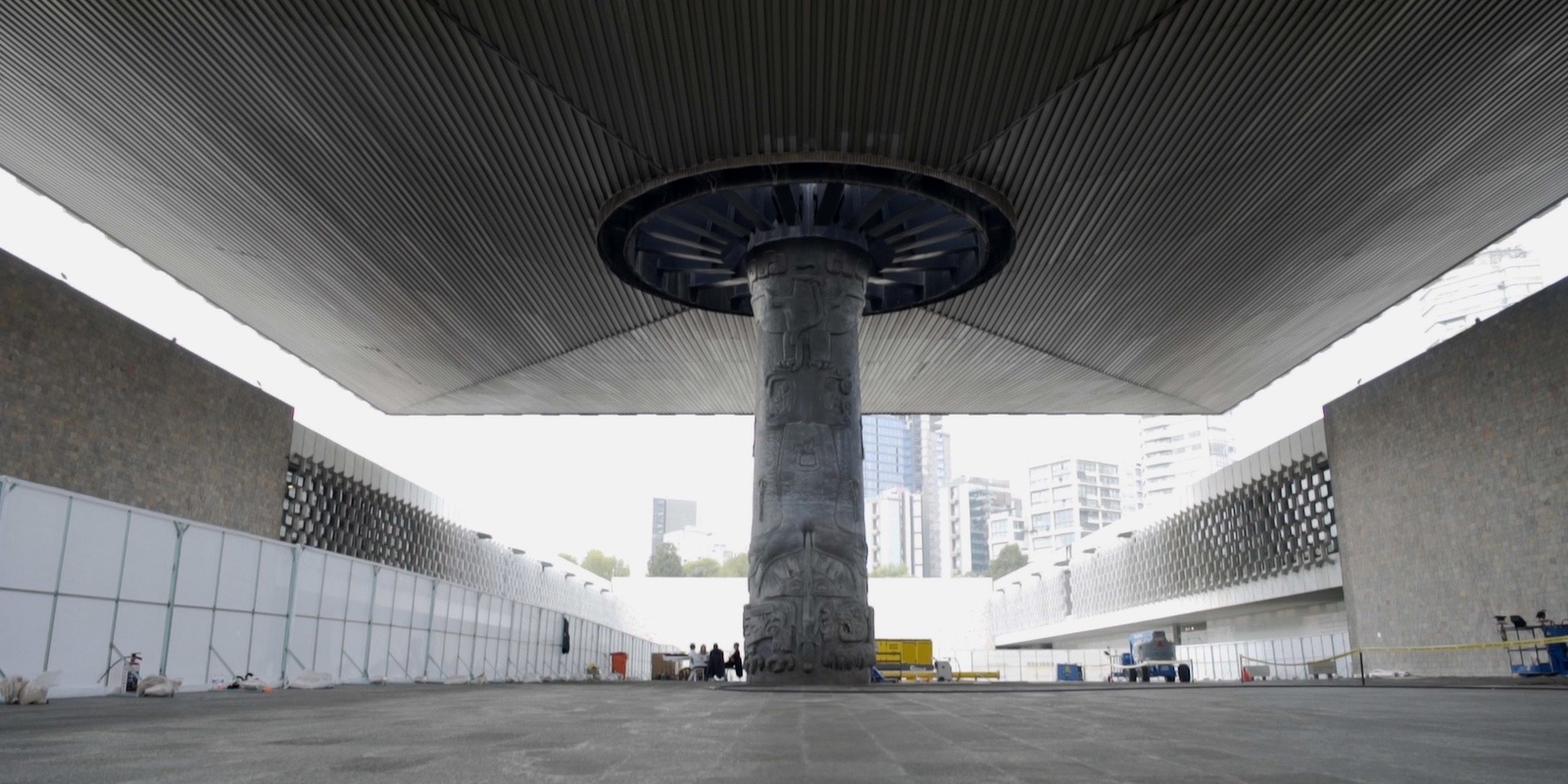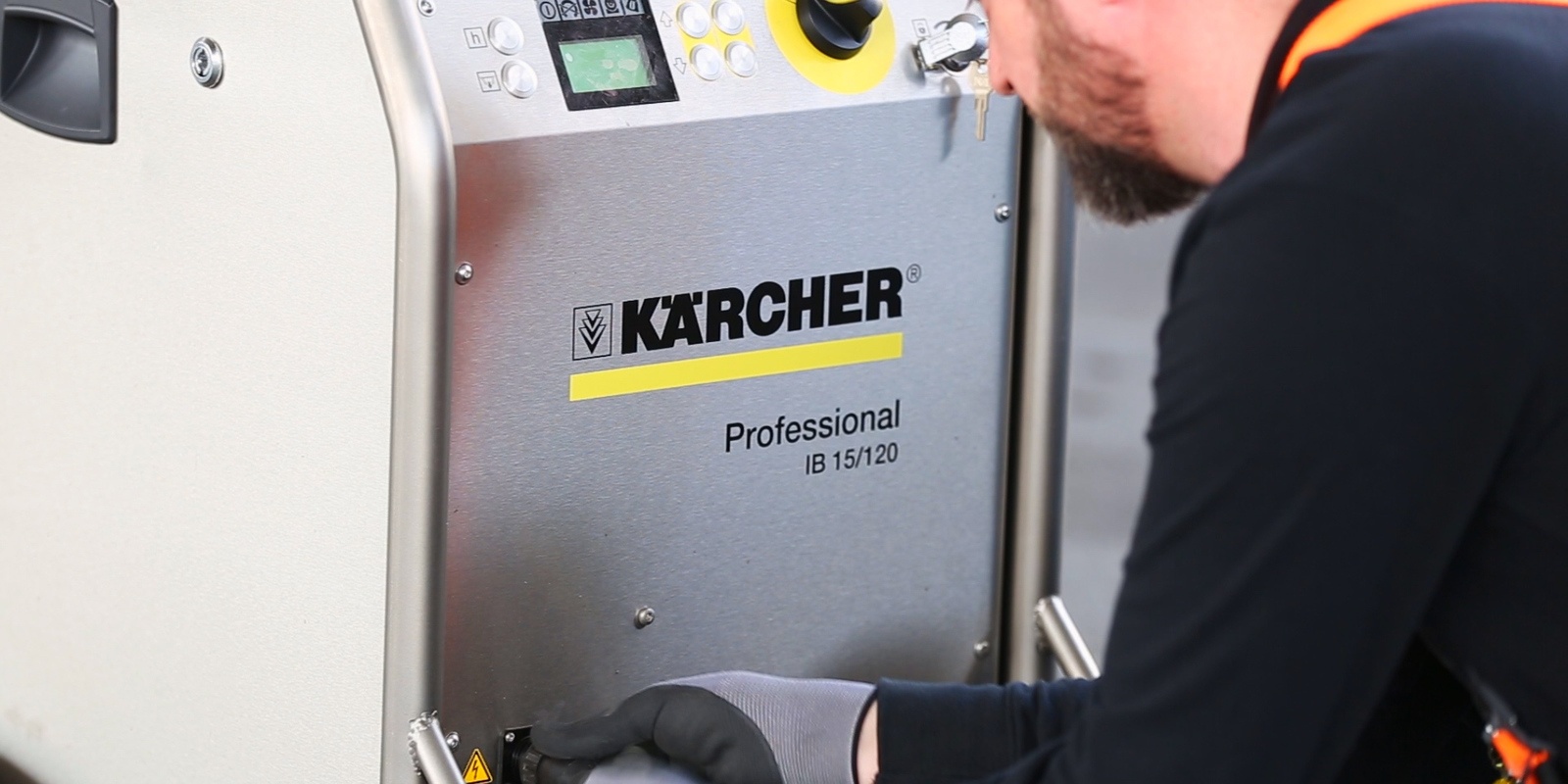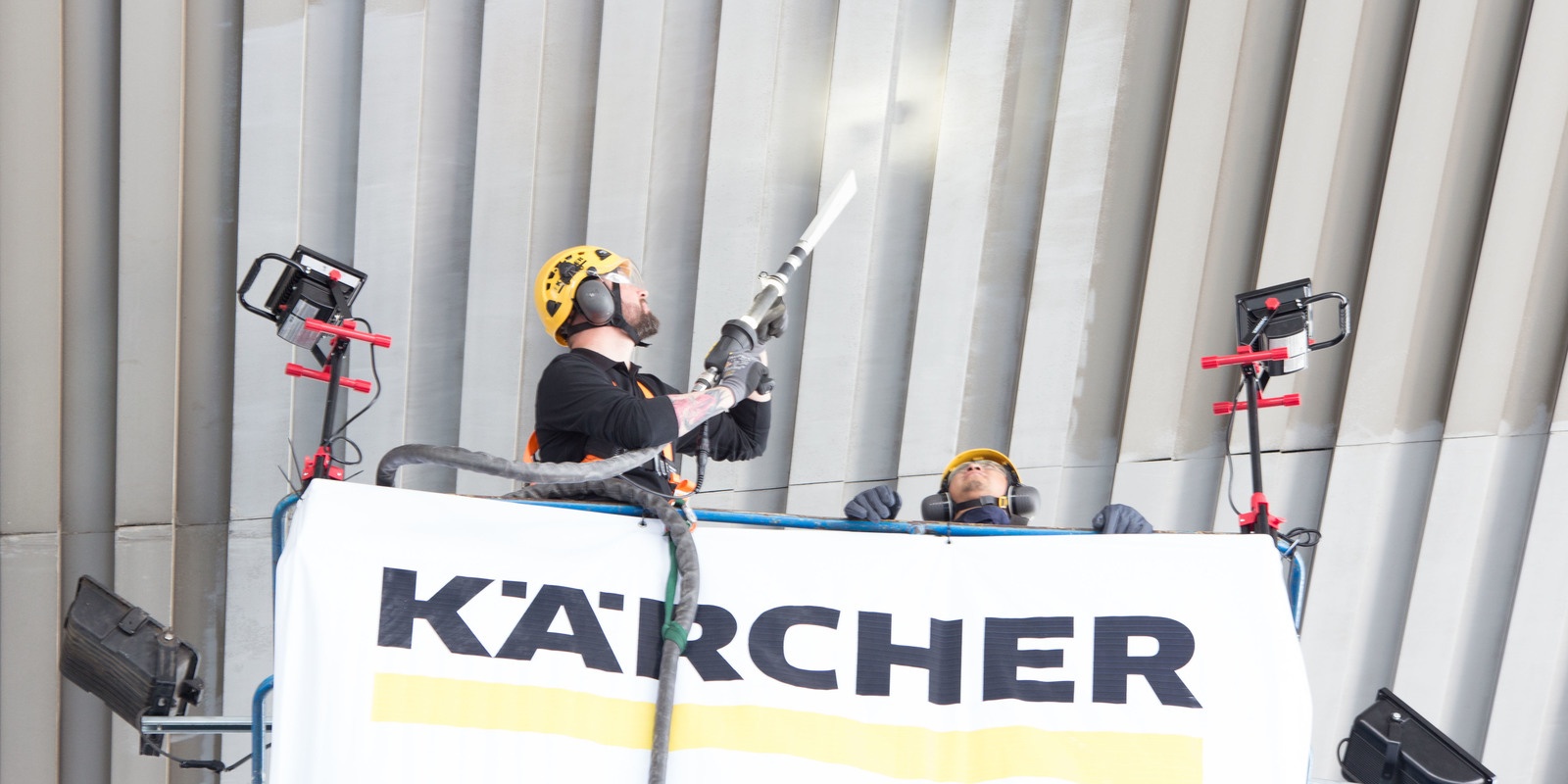National Museum in Mexico City supported
Kärcher freed the artistic fountain "Paraguas" in the courtyard of the Mexican National Museum of Anthropology of dust and sediments.

The artistic fountain "Paraguas" is situated in the center of the Museum Square.

Three IB 15/120 dry ice blasting units were used for the cleaning.

The soiling was removed with the help of the dry ice blasting method.
Dry ice vs. dust and encrustations
Kärcher cleaned the famous artistic fountain “Paraguas” (“umbrella”) in the inner courtyard of the National Museum for Anthropology in Mexico City as part of their cultural sponsoring.
The main problem on the structure, made of reinforced concrete and aluminium, were dust and encrustations that have built up since its construction in 1963 because of the constant humidity. In addition, some areas were corroded. The fountain was freed from these sediments by Kärcher’s cleaning experts with three IB 15/120 dry ice blasting units.
The dry ice blasting method
This method works with dry ice granules. The 3mm-large pellets consist of carbon dioxide held at a temperature of -110° Fahrenheit. They are blasted via compressed air onto the surface with a speed of more than 500 feet per second. The pellets shift from a solid to a gaseous state (sublimation) at the moment of impact. They penetrate the dirt and literally blast it from the surface because of the increase in volume during the sublimation, without damaging the aluminum underneath.
Gentle cleaning that doesn’t leave a mark
The sublimation leaves no residue of blasting abrasives that would otherwise have to be collected. “The method isn’t only effective but eco-friendly – it manages without chemical additives and leaves no waste whatsoever,” explains Thorsten Möwes, cleaning expert at Kärcher. This means that this method is suitable for use in restorations.
National Museum for Anthropology
The National Museum for Anthropology exhibits Mexico’s pre-Columbian past and native culture. It houses one of the most important archaeological collections in the world. The 23 halls are accessible from a central, open square. The artistic fountain stands in the center of this connecting square. The structure, made of reinforced concrete and aluminum, measures 180 by 270 feet with a height of almost 55 feet.
Facts at a glance
Country: Mexico
City: Mexico City
Material: Reinforced concrete, aluminium
Soiling: Dusts, encrustation, corrosion
Cleaning technique: Dry ice blasting method
Execution: Spring / Summer 2018




